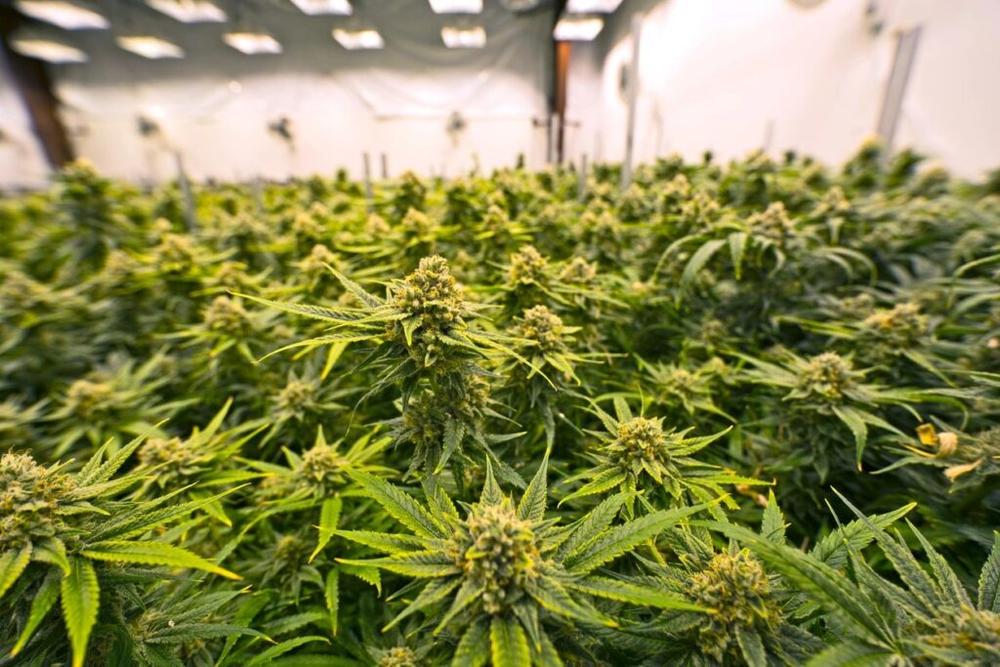
Section Branding
Header Content
New ‘fix’ to Georgia’s medical cannabis program clears legislative committee
Primary Content

ATLANTA — A Georgia House committee has approved legislation aimed at breaking a legal logjam that has held up the state’s medical marijuana program for years.
House Bill 196, which cleared the House Judiciary Committee (Non-civil) late Wednesday, would expand the number of medical cannabis production licenses the state awards to 14, up from the current six.
The eight licenses not already awarded would go to companies that filed lawsuits when their bids for licenses were denied. Those legal protests remain pending and — if unresolved — could drag on for up to two years, preventing the program from moving forward and providing low-THC cannabis oil to Georgia patients suffering from a range of diseases.
“I’m recommending a fix to get this thing up and going,” state Rep. Alan Powell, R-Hartwell, the bill’s chief sponsor, told the committee. “This gets us out of litigation. The licenses could be issued, and [the companies] could go forward.”
The General Assembly first legalized possessions of cannabis oil for medicinal purposes back in 2015. However, it wasn’t until 2019 that lawmakers passed legislation allowing commercial businesses to grow marijuana indoors under close supervision, convert the leafy crop into low-THC cannabis oil and sell the product at dispensaries they own.
The 2019 law created a state commission to oversee the program by issuing six licenses to winning bidders, two Class 1 licenses allowing marijuana to be grown in spaces up to 100,000 square feet. The other four were for a smaller growth space of up to 50,000 square feet.
The Georgia Access to Medical Cannabis Commission has awarded the two Class 1 licenses, and the winning companies are preparing to launch their operations.
Botanical Sciences LLC recently dedicated its production facility in Glennville, while Trulieve Georgia is ramping up its plant in Adel.
“We have already begun the production process, which starts with the seeding of cannabis plants in our indoor growing facility producing a variety of tinctures, capsules, and topicals formulated to address the needs of Georgia patients,” Botanical Sciences CEO Gary Long said this week.
“The opening of our facility was a key milestone for our company, for the city of Glennville, and for the many thousands of those in need awaiting access to this critical form of medicine.”
While the two Class 1 licensees move ahead, the four Class 2 licensees — which were awarded tentative licenses last year — are in legal limbo, with their awards being held up by lawsuits pending in the Georgia Court of Appeals.
Kristen Goodman, a lawyer representing four of the losing bidders, called the commission’s procurement process a “train wreck” veiled in secrecy. Without naming names, she said donations were made by winning bidders to some of those involved in evaluating the bids.
Goodman said the licenses the commission has awarded – both tentative and final — have gone to out-of-state companies that have concentrated their planned dispensaries in the more populated areas of Georgia around Atlanta, Macon, and Augusta.
“They’re not serving the children who have excessive seizures in Northwest Georgia. They’re not serving the children with cancer in Southwest Georgia,” she said. “They have all the market they need right here in the central part of the state.”
Goodman urged the committee to approve the bill because the additional licenses would render the lawsuits moot and allow the program to move forward.
“We owe it to the citizens of Georgia waiting for this medication,” she said.
Powell’s bill now heads to the House Rules Committee to schedule a vote on the House floor.
This story is available through a news partnership with Capitol Beat News Service, a project of the Georgia Press Educational Foundation.

